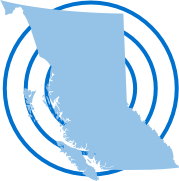
COVID-19 Support
Helping the most vulnerable as our communities respond to COVID-19.
We will get through this together.
We know that many people could not, and cannot, afford to adequately prepare for how COVID-19 affected their families.
Many do not have adequate support, should they need to self-isolate. Those who already face barriers – like poverty, homelessness, and social isolation – need even more help.
We listen to and work closely with our community partners to identify areas of urgent need and co-create impactful and timely solutions.
Crisis is not unfamiliar to us.
United Way British Columbia has responded to many urgent and pressing challenges throughout our 90-year history and we have always been there for each other.
While COVID-19 impacted us all tremendously, we are tackling the pandemic with a familiar approach: by mobilizing everyday citizens to build collaborative solutions and create life-saving connections in the communities we all love and call home.
Addressing the urgent need for food
Our friends and neighbours are in crisis due to COVID-19. In communities across our province, more and more people are at risk of hunger.
Many individuals and families are struggling to make ends meet – leaving kitchen shelves bare. The agencies who serve them and that we support are reaching a critical breaking point.
- 98% of our non-profit community partners have seen an increased demand for food;
- 92% have identified food security as a top issue;
- 72% of these agencies cannot meet current needs.

